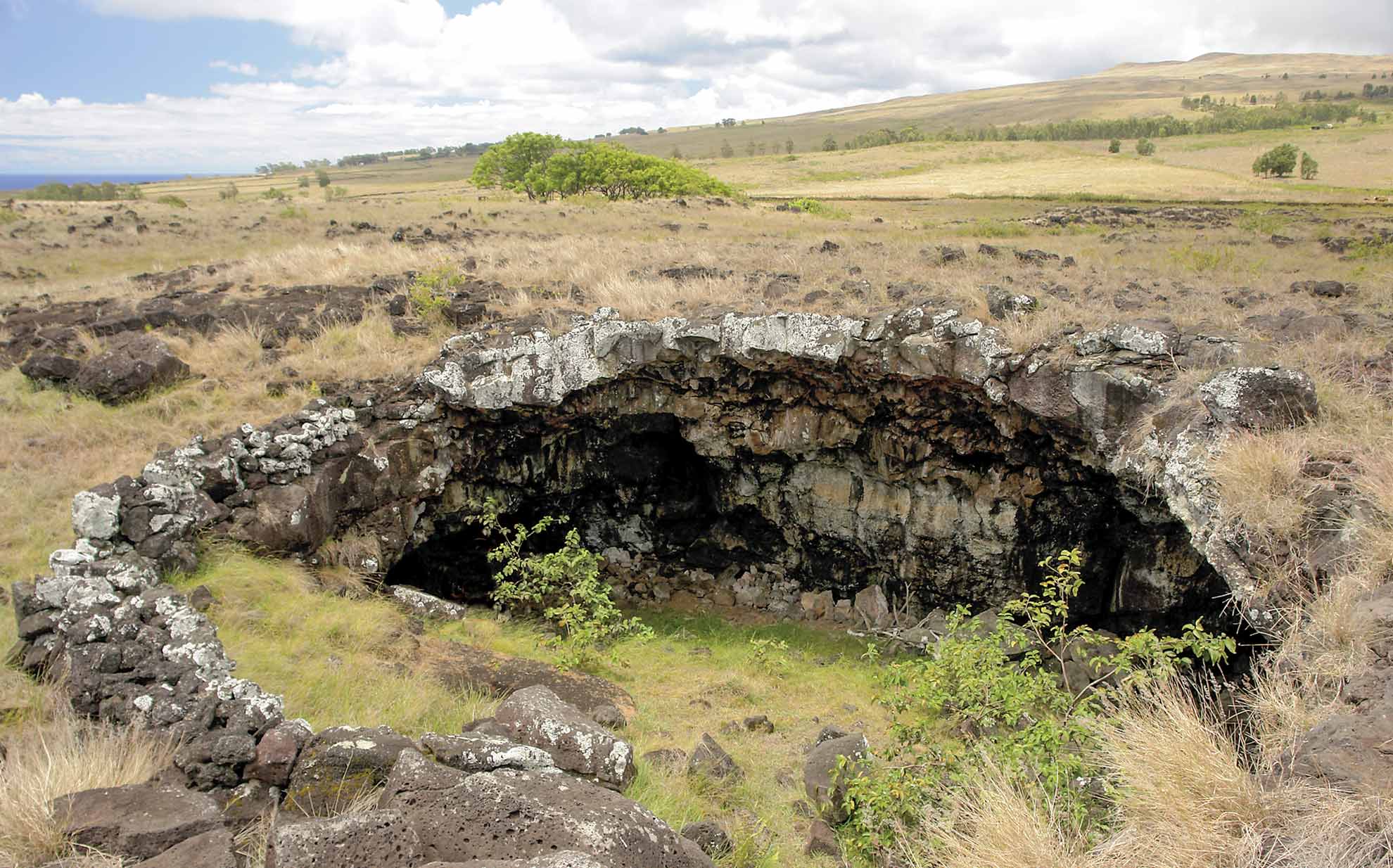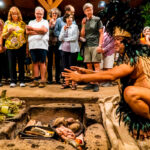PLACES
Ahu Renga Karo
On the south side of the Ana Kai Tangata cave, before reaching CONAF, there are vestiges of an ancient coastal Ahu that Sebastián Englert names Ahu Renga Karo Today is totally destroyed.
Roiho
Many of the legends of the Rapanui people are associated with specific places within the Roiho district. Here we can find a great density of archaeological sites, many of which are open to visit
Ahu Akivi
kivi is a platform with seven Moai (statues) of around 4 meters (13 feet) in height. It was originally called Ahu Atio Runaru and is thought to have been constructed around 1460. It was restored in 1960 by the archaeologists William Mulloy (USA) and Gonzalo Figueroa...
Akahanga
The Grave of Hotu 'a Matu 'a ccording to legend, when Hotu Matua, the great mythical first King of Te Pito o Te Henua, died, his subjects made a pallet, placed his body on it and carried him to Akahanga. There they excavated a deep pit and buried him as his oldest...
ANAKENA
The Bay of the Kings Anakena, also called Hanga Ra´u o te Ariki (Bay of the Great Kings), is the place where the two great canoes of the mythical King Hotu Matua and his sister Ava Rei Pua, together with their followers, are supposed to have arrived. In the head of...
The Underground World of Rapa Nui
Underneath a shallow layer of soil over the ancient volcanic rock lies an invisible world full of legends and mystery. Rapa Nui has volcanic bedrock which is like a giant petrified sponge, full of caves and caverns of many sizes, from simple grottos and narrow...
Orongo
The Cult of the Bird-Man Located on the southwestern edge of the immense crater of Rano Kau in front of three small islets where migratory marine birds used to nest in the spring, Orongo has to be one of the most spectacular places on Rapa Nui. The ceremonial village...
Ovahe
The Beach of the Red Skies The beach at Ovahe, previously called Rangi Mea Mea or Red Skies, has formed in the base of an ancient volcanic crater of which one side, worn away by the tides and erosion, has sunk into the sea. The ebb and flow of the waves has covered...
Papa
Petrified Lava with Petroglyphs Ancient lava flows created many Papa, or flat rock surfaces, which tempted the artists of Rapa Nui to use them in another form of expression. Around 4,000 petroglyphs have been discovered and documented by the American...
Puna’a Pau
The quarry of Pūkao Some 58 Moai (statues) of the 164 that were once raised on an Ahu (platform) received a crown or headdress of red volcanic scoria which was called a Pukao. These were carved between the years 1250 and 1500 and probably represent a hair...
Puo Hiro
Near the eastern side of La Pérouse Bay, there is a large oval shaped rock with many large holes. This stone formation is actually human work and is called Pu o Hiro, (holes or trumpet of Hiro). It is covered with Komari (female vulvas)...
Rano Raraku
The Quarry of the Moai Nearly 400 stone remains are found within and on the outside of the crater. Some are standing, while others lie almost finished or only half finished, and yet others are broken on the road to a platform that they never reached. ...
Vinapū
Evoke Inca Walls On the southeastern coast, there are two ceremonial centers located very close to each other, Ahu Tahiri (Vinapu I)and Ahu Vinapu II. There may also be a third Ahu (ceremonial platform), possibly the most ancient one, of which only a pile of rocks...
Ceremonial Center TAHAI
Tahai is one of the most important ceremonial centers of the Island, located on the west coast, just one kilometer (3,300 feet) north of the village of Hanga Roa, covering an area of 20,000 square meters (4 acres). Along with Ahu Vinapu, it is one of the...
Te Pito Kura
Ahu Te Pito Kura is the last important archaeological center of importance on the northern shore before reaching Ovahe beach. It is a platform of almost 100 meters (328 feet) in length, formed of great blocks of basaltic rock, worked and adjusted with great...
magazine moevarua





















